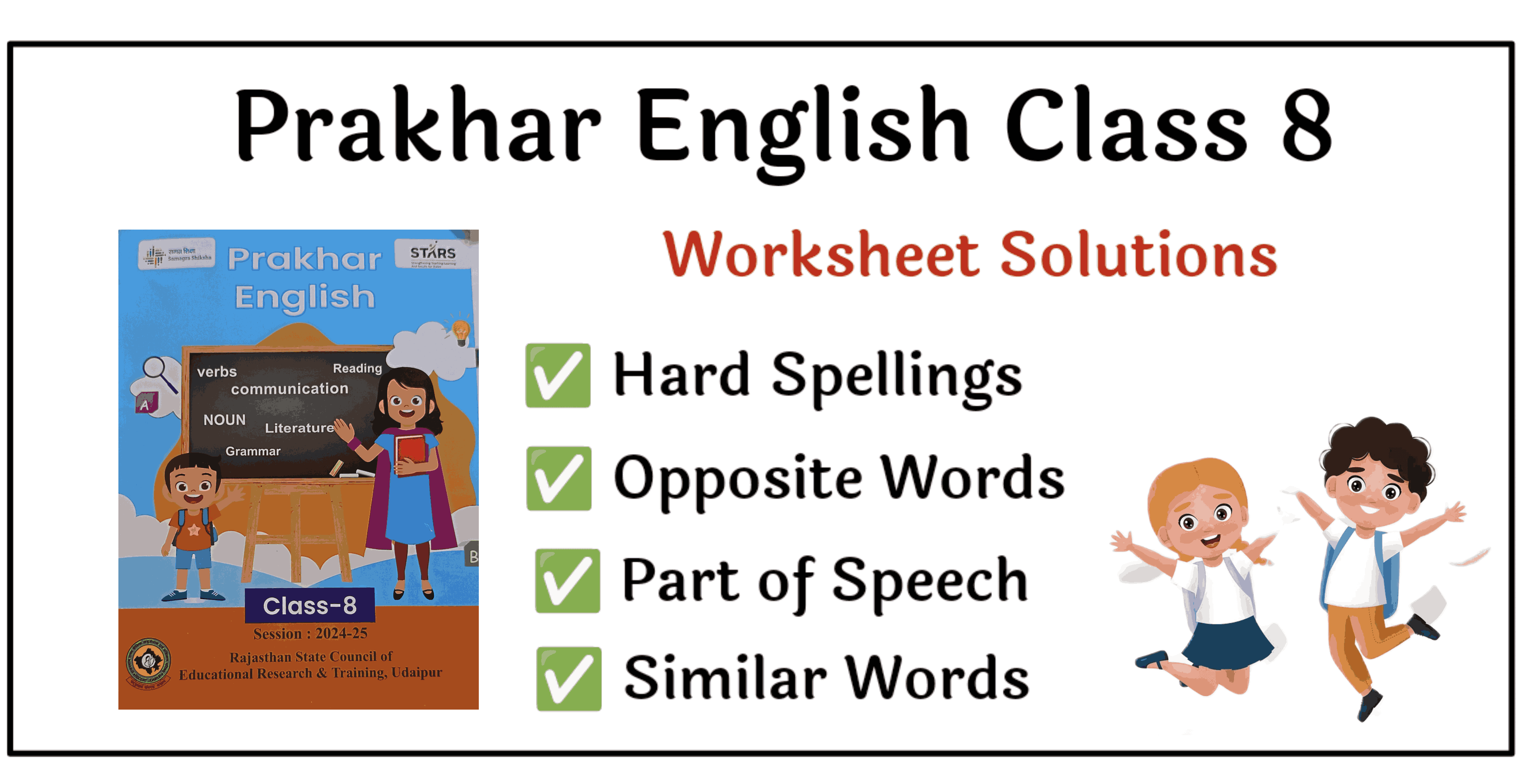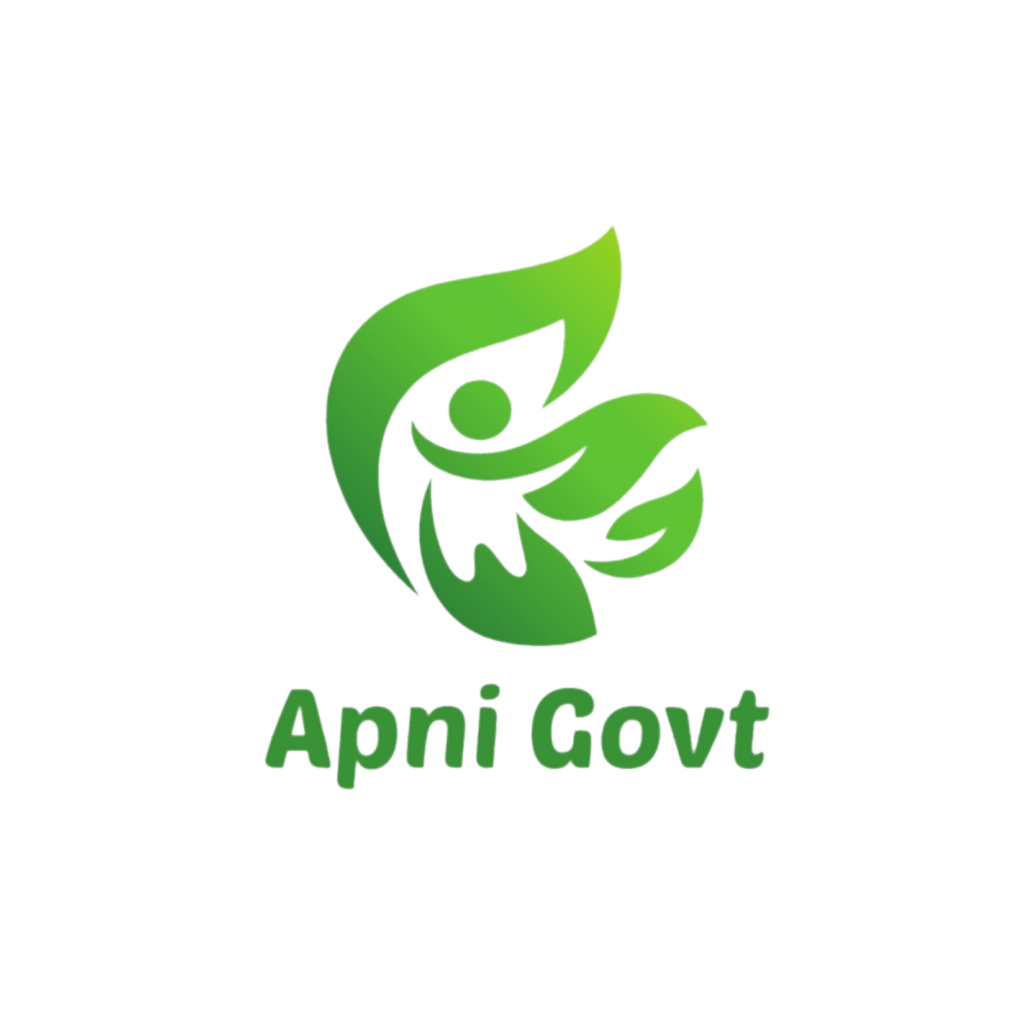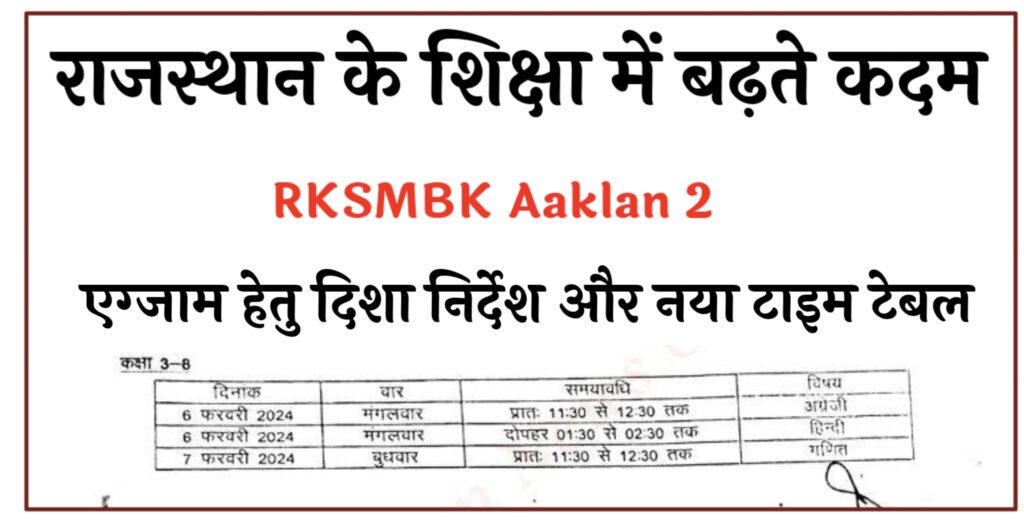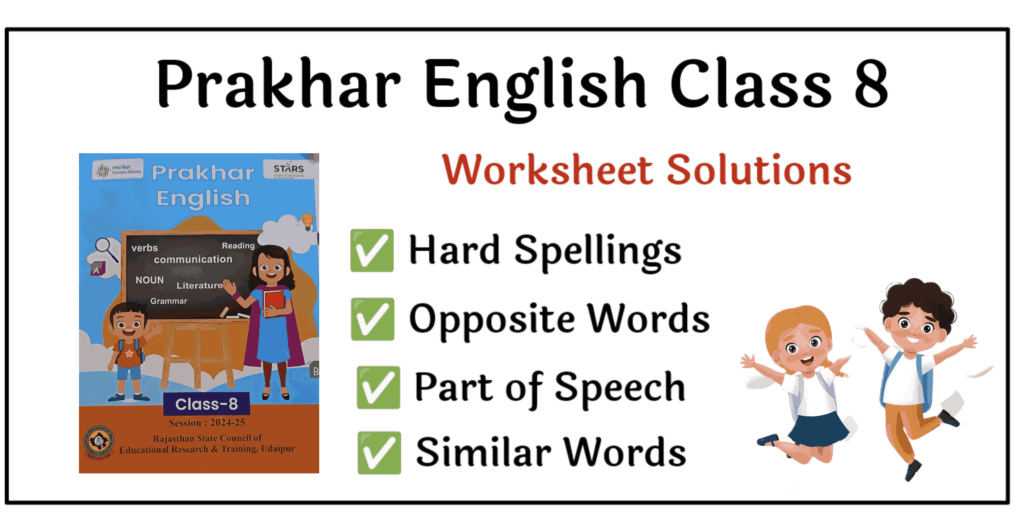Class 8 Worksheet 12 Question Answers
RSCERT Rajasthan State Council of Educational Research & Training, Udaipur द्वारा विद्यार्थियों के अधिगम स्तर को बढ़ाने के लिए एक बेहतरीन प्रयास हेतु वर्कबुक जारी की गयी है I हमने आपकी Learning में और सुधार करने और एक इस कार्यपत्रक (Class 8 Workbook) Worksheet 12 में Hard Spellings, Part of Speech, Grammar & Vocabulary , Gender,Opposite, Similar Words, One words etc यहाँ क्लियर किये है

Worksheet 12 Solution English
Read and say given tongue twisters as quickly as you can: (जितनी जल्दी हो सके पढ़ें और दिए गए टंग ट्विस्टर्स को बोलें)
1. Tongue Twisters:
(i) I scream, you scream, we all scream for ice cream.
(ii) I saw a kitten eating chicken in the kitchen.
(iii) Four fine fresh fish for you.
(iv) I wish to wash my Irish wrist watch.
(v) Sheela needs, Sheena leads.
Read the given riddles below and write their meaning in one word: “नीचे दिए गए रिडल्स (पहेलियाँ) को पढ़ें और उनके अर्थ को एक शब्द में लिखें:”
2. Riddles and Their Meanings:
(i) What can travel around the world while staying in a corner?
Answer: stamp
Explanation: A stamp stays in the corner of an envelope, yet the envelope can travel around the world.
(ii) During which month do people sleep the least?
Answer: February
Explanation: February is the shortest month of the year, so people sleep the least because it has fewer days.
(iii) What has hands but cannot clap?
Answer: A clock
Explanation: A clock has hands (hour hand, minute hand) but cannot clap.
(iv) What has a head and a tail, but no body?
Answer: A coin
Explanation: A coin has a head (one side) and a tail (the other side), but no body.
(v) Which word in the dictionary is spelled incorrectly?
Answer: Incorrectly
Hard Spellings
यहां वर्कशीट Worksheet -12 शब्दों के हिंदी उच्चारण और उनके अर्थ दिए गए हैं:
यहाँ दिए गए वाक्यांशों के लिए कठिन शब्दों के उच्चारण और अर्थ को एक तालिका में प्रस्तुत किया गया है:
मुझे समझ आ गया है! आप चाह रहे हैं कि केवल कठिन शब्दों की स्पेलिंग, हिंदी उच्चारण और अर्थ की तालिका दी जाए। तो यह रही केवल उन कठिन शब्दों की तालिका:
| कठिन शब्द | हिंदी उच्चारण | अर्थ |
| Stamp | स्टाम्प | डाक टिकट |
| February | फेब्रुआरी | फरवरी – |
| Clock | क्लॉक | घड़ी |
| Coin | कोइन | सिक्का – |
| Incorrectly | इंकोरेक्टली | गलत |
| कठिन शब्द | हिंदी उच्चारण | अर्थ |
| Scream | स्क्रीम | चिल्लाना |
| Kitten | किटन | बिल्ली का बच्चा |
| Chicken | चिकन | मुर्गा, मुर्गी |
| Kitchen | किचन | रसोई |
| Fine | फाइन | अच्छा, बेहतरीन |
| Fresh | फ्रेश | ताजा |
| Fish | फिश | मछली |
| Wish | विश | इच्छा करना |
| Wash | वॉश | धोना |
| Irish | आयरिश | आयरलैंड से संबंधित |
| Wrist watch | रिस्ट वॉच | कलाई घड़ी |
| Needs | नीद्स | आवश्यकता होती है |
| Leads | लीद्स | नेतृत्व करना |
Opposite words, Gender, WH words
1. Opposite Words (Antonyms)
| Word | Opposite |
|---|---|
| Happy | Sad |
| Big | Small |
| Hot | Cold |
| Day | Night |
| Tall | Short |
| Fast | Slow |
| Light | Dark |
| Strong | Weak |
| Empty | Full |
| Beautiful | Ugly |
2. Gender (Masculine, Feminine)
Masculine to Feminine:
| Masculine | Feminine |
| Man | Woman |
| Boy | Girl |
| Father | Mother |
| Brother | Sister |
| Husband | Wife |
| King | Queen |
| Uncle | Aunt |
| Hero | Heroine |
| Son | Daughter |
Neuter:
- Neuter nouns are usually non-living things, like book, pen, table, chair, etc.
3. WH-Words (Question Words)
| WH-word | Usage |
| What | Asks about things or objects. (e.g., What is your name?) |
| Where | Asks about a place or location. (e.g., Where do you live?) |
| When | Asks about time. (e.g., When is your birthday?) |
| Why | Asks for reasons. (e.g., Why are you crying?) |
| Who | Asks about a person or people. (e.g., Who is your friend?) |
| How | Asks about the manner or way something is done. (e.g., How are you?) |
| Which | Asks for a choice from a limited set. (e.g., Which color do you prefer?) |
| Whose | Asks about possession. (e.g., Whose book is this?) |
4. Tenses
Present Tense:
- Simple Present: For regular actions or facts.
- I eat breakfast every morning.
- Present Continuous: For actions happening right now.
- I am eating breakfast right now.
- Present Perfect: For actions that started in the past and continue in the present or actions completed recently.
- I have eaten breakfast already.
- Present Perfect Continuous: For actions that started in the past and are still ongoing.
- I have been eating breakfast for 30 minutes.
Past Tense:
- Simple Past: For actions that happened at a specific time in the past.
- I ate breakfast this morning.
- Past Continuous: For actions that were happening at a specific time in the past.
- I was eating breakfast when you called.
- Past Perfect: For actions that happened before another action in the past.
- I had eaten breakfast before I left for work.
- Past Perfect Continuous: For actions that were ongoing up to a certain point in the past.
- I had been eating breakfast for 30 minutes before you arrived.
Future Tense:
- Simple Future: For actions that will happen in the future.
- I will eat breakfast tomorrow.
- Future Continuous: For actions that will be happening at a specific time in the future.
- I will be eating breakfast at 8 AM tomorrow.
- Future Perfect: For actions that will be completed before another future event.
- I will have eaten breakfast by the time you arrive.
- Future Perfect Continuous: For actions that will be ongoing up to a specific time in the future.
- I will have been eating breakfast for 30 minutes by the time you arrive.


